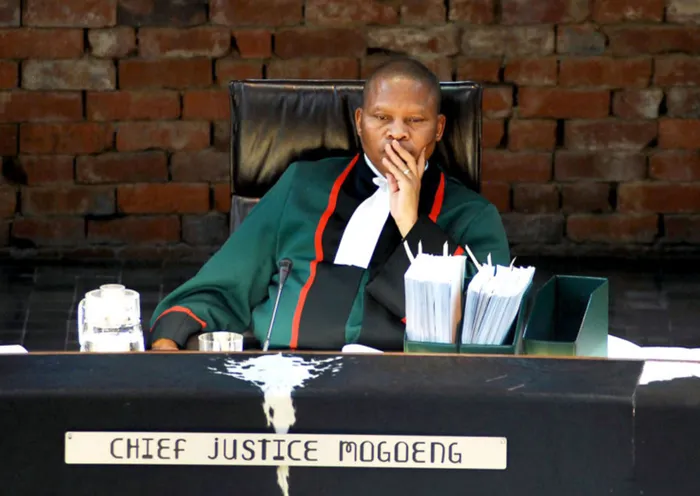Top judge calls for more freedom

054 20-11-2012 Chief Justice Mogoeng Mogoeng during the court examination by aggrieved ANC members at the Constitutional court, the case has been postponed until tomorrow. Picture: TIRO RAMATLHATSE 054 20-11-2012 Chief Justice Mogoeng Mogoeng during the court examination by aggrieved ANC members at the Constitutional court, the case has been postponed until tomorrow. Picture: TIRO RAMATLHATSE
Cape Town - Chief Justice Mogoeng Mogoeng is beating the drum for judicial independence - and with a survey in his in-tray on how many judicial officers would be needed for an effective justice system, he is set to approach the Justice Ministry.
And he wanted the judiciary to be delinked from the Justice Ministry and instead to report directly to Parliament, it emerged during his address to North West University which gave him an honorary doctorate.
“Why should there be a politician at the head of the judiciary?” he said, according to SAfm.
This came after the Justice Department, which allocates funds to the judiciary and courts, told MPs last week it had set aside R191 million for the office of the chief justice.
The office was established as a department under Justice in 2010 amid moves to make the chief justice the head of all judges and magistrates, with the Constitutional Court the highest appeal court in all matters, not just constitutional questions.
The process was completed this year when the relevant legislation was signed into law.
Justice Mogoeng, who gave last week’s Nicro (National Institute for Crime Prevention and the Reintegration of Offenders) Human Rights lecture, emphasised the judiciary’s independence and that it played a significant role in ensuring South African’s socio-economic rights were realised.
“If we have that judiciary that is truly independent, irrespective who is in the highest political office, the socio-economic rights become reality,” he said.
So if textbooks were not delivered, or schools were built at inflated prices, “the courts must say, ‘This is wrong.’ If we were corrupt, we could only take the word from the powerful, who say, ‘I won this tender’ ”.
The judiciary would not be dictated to by “politicians in the executive or the politicians in Parliament… or the rich and powerful or the media”, Justice Mogoeng said.
Regardless of current funding arrangements and the proposals for the judiciary to be an independent entity along the lines of Chapter Nine institutions like the public protector or the auditor-general, the chief justice said administration related to justice was already in the hands of judicial officers.
This included pilot case management projects under way in several of the country’s high courts and the roll-out to provinces of the already existing national efficiency enhancing committee, which behind closed doors brings together the heads of courts, the police and correctional services commissioners, and the National Prosecuting Authority.
The aim, Justice Mogoeng said, was to ensure an effective justice system so criminals knew they would be arrested and they would not be able to “oil the palms” of prosecutors and others to make charges go away.
However, the number of judicial officers was a concern, he said, citing Germany where there were 20 000 judicial officers for a population of 82 million, while South Africa with its population of 52 million had a total of 2 400 magistrates and judges.
This explained why Germany was able to deal more speedily with crime and court cases.
Cape Argus